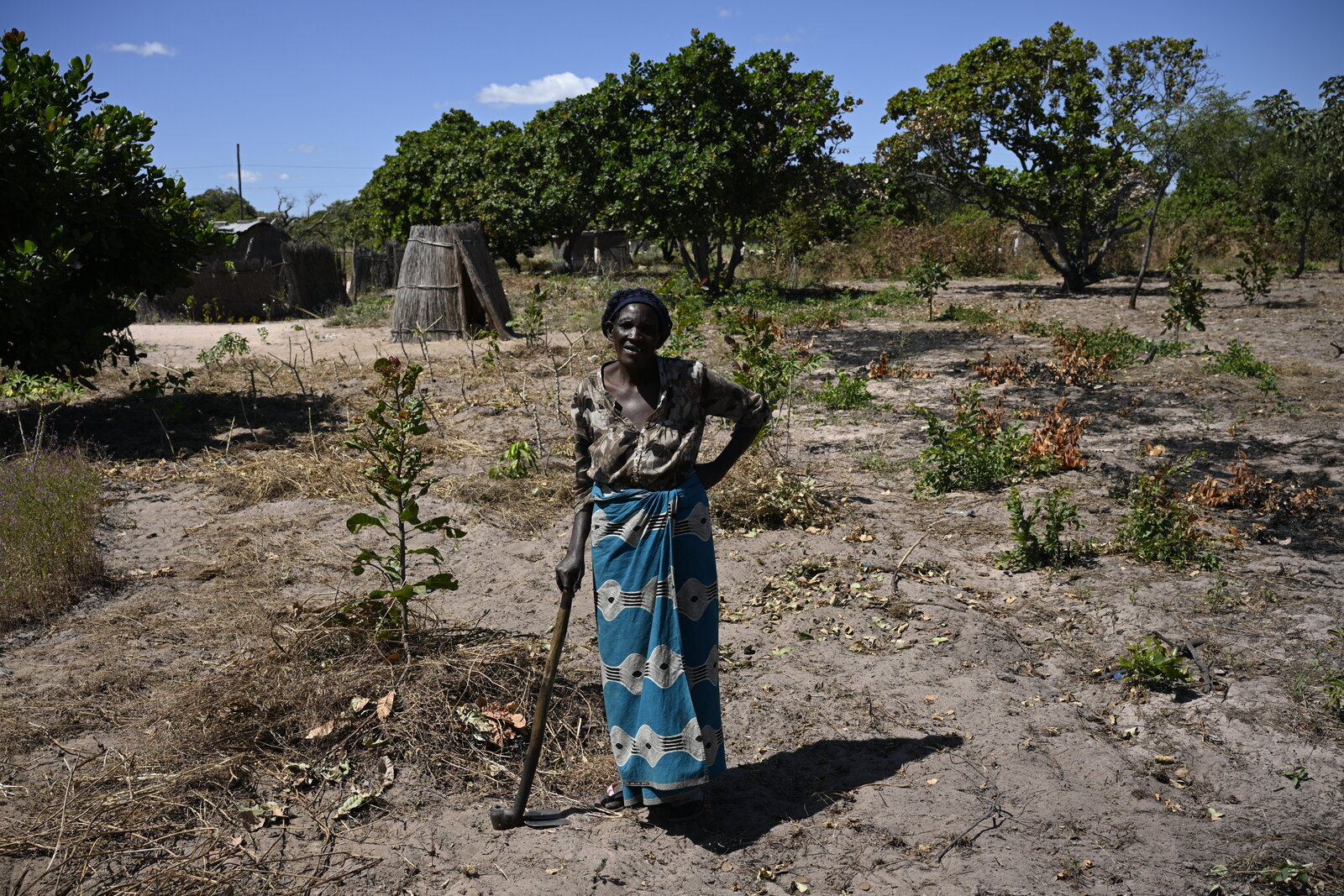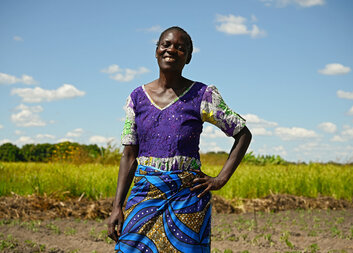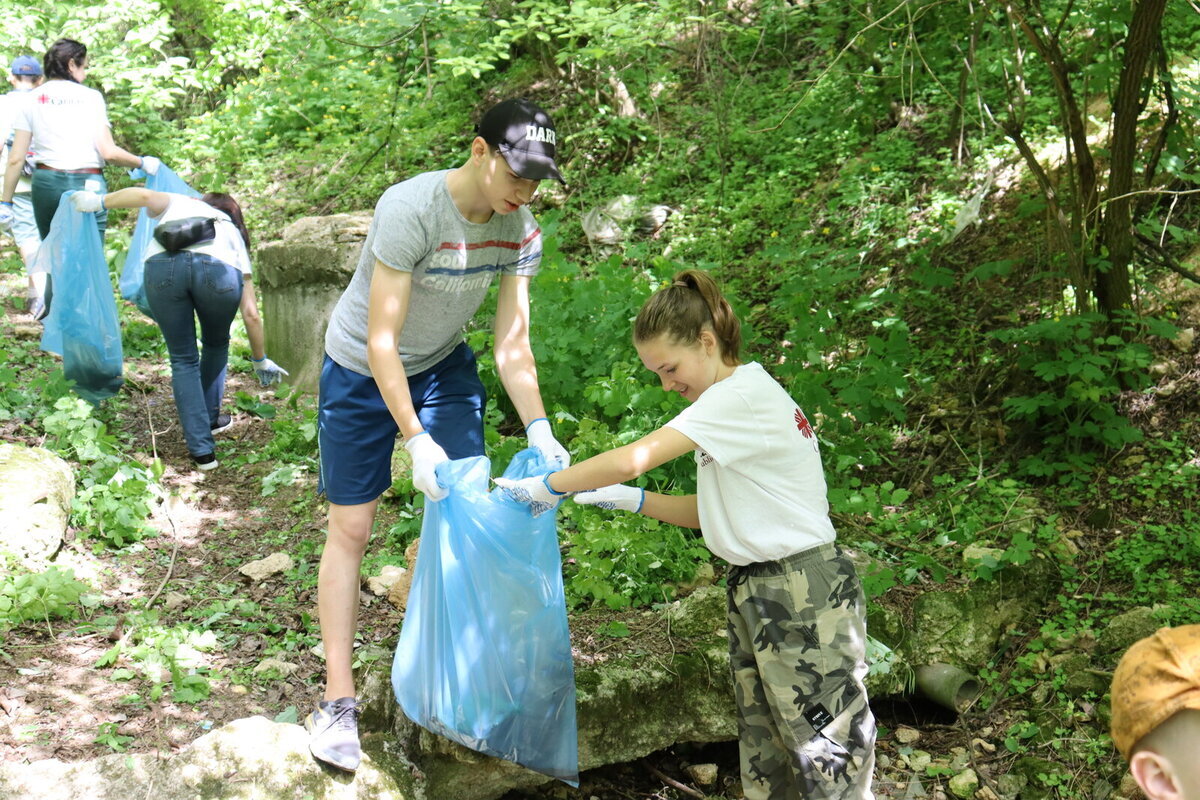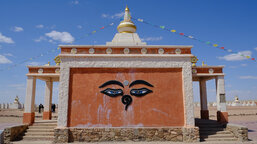We care about our planet. That is why we help protect it in several countries around the world. We are introducing innovative solutions for farmers in Zambia to help them adapt to climate change, planting resilient trees in Iraq and improving waste management in Moldova. What else is Caritas Czech Republic doing to protect the environment?
1. Introducing innovations for farmers in Zambia to help them adapt to climate change
A simple thing like a mobile phone is often enough to combat the effects of climate change. Through a phone, farmers in poor regions of Zambia can find out important information about the climate so they know when the rains will come and what to grow in a given season, or what crops can withstand climate shocks. They can also easily get their produce to market via a phone app.
Zambia is one of the countries hard hit by climate change. Farmers in poor regions are the ones who feel it the most, as they face crop failure due to drought and are unable to secure their livelihoods in the long term.

Thanks to our initiative, more than 40,000 small-holder farmers in Zambia have strengthened their capacity for climate resilience and increased their access to climate information or virtual markets. At the training, they also learned that they can use insurance to cover losses caused by climate change, something they had not known before.
We protect the environment in Zambia in many other ways. For example, we introduce farmers to conservation farming methods and have encouraged the use of energy-efficient cooking methods, such as the use of green charcoal. We also encourage refugees to take up conservation farming or beekeeping.
We are introducing innovations for farmers in Zambia thanks to the support of the Ministry of Foreign Affairs of the Czech Republic and in close cooperation with the World Food Programme and the Ministry of Agriculture of Zambia.
2. Planting trees in Iraq to prevent desertification
Iraq has long been plagued by extreme drought and desertification. Decades of conflict have exacerbated these problems. The Anbar region in particular has faced frequent desert storms and high dust levels due to desertification. It is in Anbar that we are helping to combat this phenomenon by planting trees that prevent desertification. These trees also require very little water, which suits the situation in an area that is facing water scarcity.
In Iraq, we are also introducing farmers to environmentally friendly farming methods. We have trained 917 farmers in the Nineveh Plains region, which is one of the most fertile areas in Iraq. In the past, we have also repaired a 3-kilometer-long irrigation canal in the district of Heet for farmers. Due to sediment and cracks in the canal, local people could not use it to its full potential. Today, the irrigation canal is working as it should again and farmers can water their fields and harvest more crops.
3. Introducing the benefits of composting in Georgia
Did you know that up to 60% of waste in Georgia's landfills is organic waste? When it decomposes without oxygen, which is what happens in landfills as opposed to composting, it releases methane into the air, which is not only harmful to human health but also contributes negatively to climate change. Yet all it takes is a simple change - to start composting - to reduce organic waste in landfills. That is why we are introducing the benefits of composting to the people of Georgia. 127 farmers have learned how to compost and a further 56 family farms and 15 schools in the Racha-Lechkhumi and Kvemo Svaneti region received composting equipment from us.
In Georgia, we have been helping to protect nature in mountain regions for a long time. We are dedicated to the sustainable development of the Samegrelo-Zemo Svaneti, Racha-Lechkhumi and Kvemo Svaneti, Adjara and Tusheti regions, where we introduce farmers to modern farming practices that can improve the quality of their products, increase their income and, in addition, contribute to the development of poor regions.
In Georgia, we support farmers in mountainous regions with financial support from the Czech Development Agency.
4. Raising awareness of the importance of recycling in Mongolia
When we say Mongolia, we usually think of beautiful nature, vast steppes and nomadic herders. Unfortunately, the country is also suffering from rapid environmental degradation. Mongolia is flooded with plastics and it does not have enough facilities to process the excessive amount of waste.
In Mongolia, we support businesses that are actively engaged in recycling plastic waste. We organise training sessions and spread awareness about the importance of waste sorting, not only among businesses but also in municipalities, schools and kindergartens.
Thanks to our initiative, we have prevented 1500 tonnes of plastic waste from ending up in landfill. We are also focusing on the protection of ecosystems in the country. In the past, we have managed to prevent the contamination of 12,000 square kilometres of land through the construction of eco-toilets. We built these out of sorted plastic material.
5. Improving waste management in Moldova
Waste management is a major problem in Europe's poorest country. Rural regions in particular struggle with illegal landfills and do not have an efficient waste management system. This was also lacking in the city of Criuleni. Caritas Czech Republic built a functional and sustainable waste management system in Criuleni in cooperation with Caritas Slovakia and SlovakAid.
In order to manage waste efficiently, we also organised a series of training sessions for Moldovan professionals and the general public, introducing them to ways in which they themselves can contribute to waste reduction, reuse and recycling. Over 3 000 residents of Criuleni learned how and why to separate waste, including through composting.
We also involved the young generation of Moldovans in environmental protection in Moldova. We organised an environmental camp, which was attended by 30 teenagers who today are themselves fighting for environmental protection in their country.













